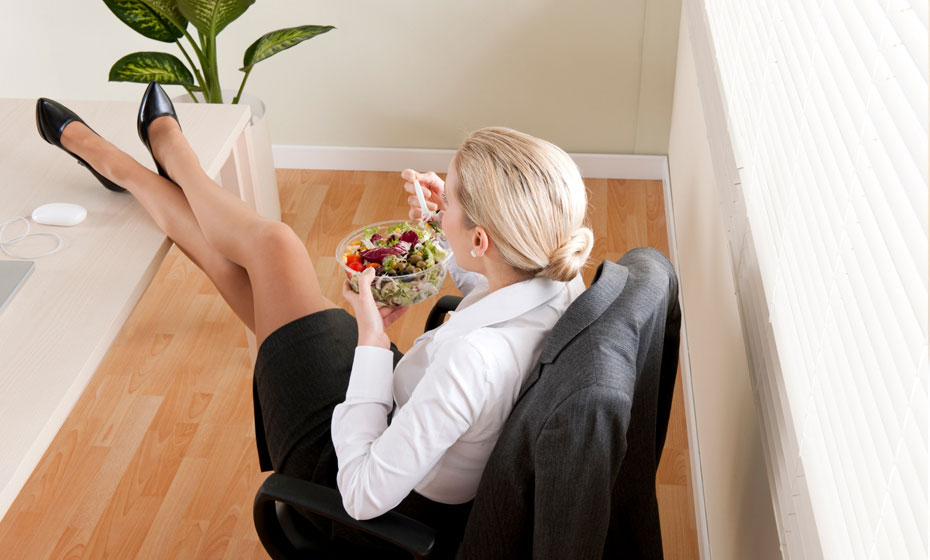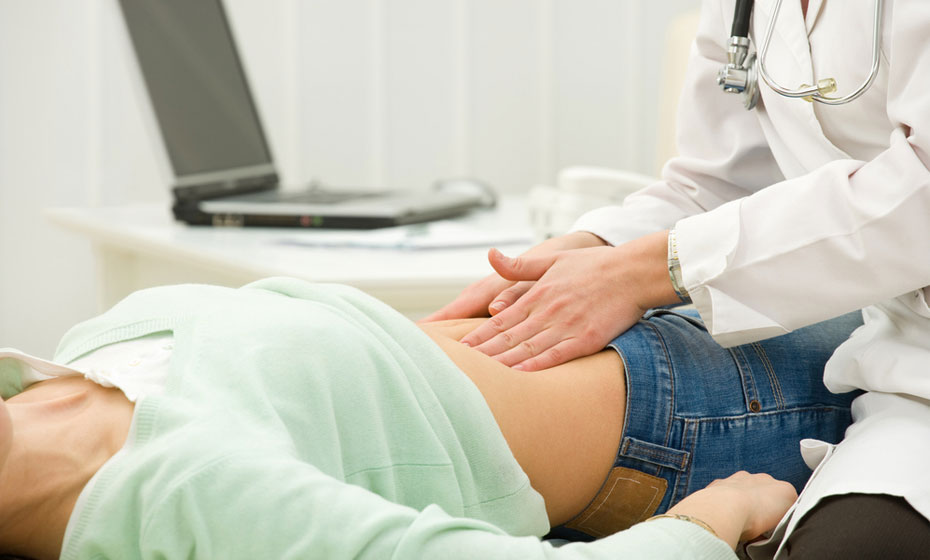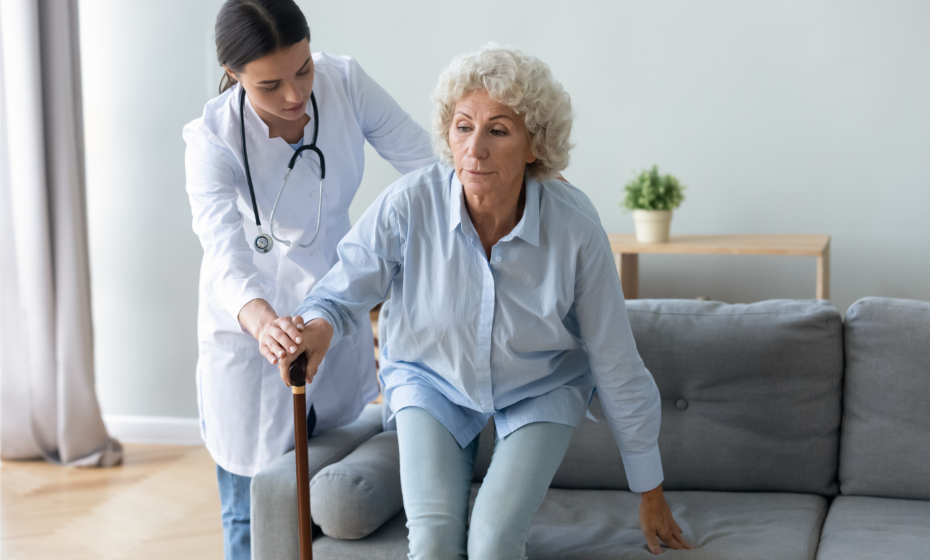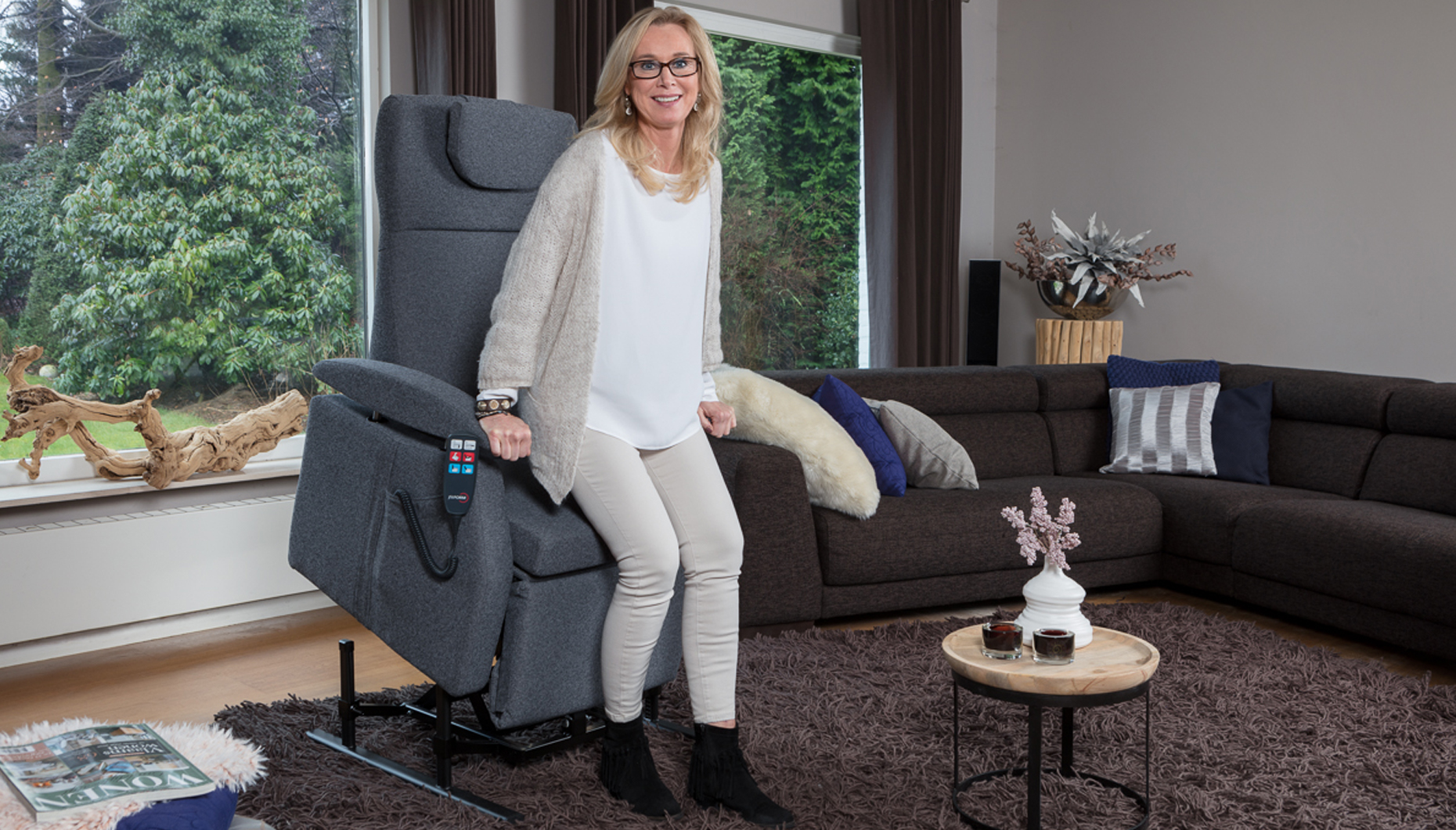 | Inflammation of tissueInflammation of tissue can occur when the backrest is too reclined or the seat depth too big. This comes about because of the shear strength which this causes. After an evening of sitting down on a sofa with separate cushions, shear forces will cause the cushions to sag. The same shear forces strength also occur, of course, with a sofa which has fixed cushions. This can lead to inflammation of the tissue when seating is prolonged. The skin can feel prickly and this causes the individual to change their sitting position regularly. Many sofas have a seat depth of 53/53 centimetres. For 80% of the population this is far too much. It’s great for lying down on, but certainly not for prolonged sitting. |
Breathing difficultiesSomeone who slouches breathes with more difficulty because the lungs are more constrained. Breathing is on the chest and not the abdomen, as should be the case. So for those suffering from asthma or shortness of breath it is important to have a proper sitting posture to have more air. |  |
 | Trapped nerves and arteriesIt’s clear that the posture of the women on the chair is not good for the nerves in her leg. What is less clear however, is that a seat which is too high can be the cause of this. It is often thought that a high seat is good for you, but this can lead to nerves in the leg getting trapped for long periods. Pins and needles can result. When blood vessels get trapped over a long period of time, this can lead to varicose veins. This can also result in the fluids no longer being discharged, leading in turn to accumulation of fluid in the legs. |
Intestinal disorders, digestion problemsIn adopting a bad sitting posture, for example slouched on the sofa, the stomach and the intestines have too little space to facilitate proper digestion. For that reason it’s important for the body to adopt an upright position, not horizontal. A correct sitting posture therefore, can prevent digestion problems. |  |
 | Getting up with difficultyIt’s self-evident that a low and deep-seated sofa will be difficult to get up out of. But often it is incorrectly believed that getting out of a high seat is easy. This is certainly not the case. A seat that is too high makes getting up more difficult because you first have to bring your weight forwards, to get a good grip with your feet on the ground. You then have to use your strength for the rising motion. The easiest chair of all to get up out of is one that - in terms of seat height, seat depth and armrest height - is most suited to the physique of the user. Is getting up still difficult? If so, a chair with an electrically operated riser-recliner function may provide the solution! |
Muscle ache and pain in jointsOur spine is kept upright by means of muscles. These muscles have the task of protecting the spine against movements we make with our body. If we sit down with a rounded back, we will put unnecessary strain on the muscles. This can lead to muscle ache or pain in the joints. Another problem is also present when we sit down with the incorrect posture: we use a lot of (muscular) energy. Our muscles have to work much harder. And this is all because we want to sit back and relax! It has been proven that someone who keeps their spine in proper balance (when standing, sitting and lying) retains no less than 30% more energy. |  |



